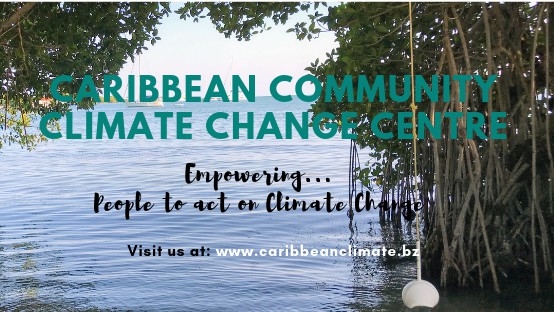[Caribbean News\Climate Change]
Shabaka Kambon: “We may have to start in early education to promote lifestyles that are less consumption-oriented, less energy-intensive and more concerned about the natural ecosystems upon which human life depends.”
Photo: Facebook
A sense of fulfillment and atmosphere of optimism characterized the close of the regional workshop on Ecosystem-based Adaptation (EbA) Gender Equality and Social Inclusion (GESI) which took place on the 15th and 16th of October 2019 at the Bay Gardens Hotel in Saint Lucia.
Facilitated by the OECS, with the support of the French Development Agency (AFD) through its Adapt’Action facility, the forum was part of an ongoing effort to enhance regional capacity to manage and adapt to both present and projected threats posed by climate change.
OECS Member States are particularly vulnerable to climate change because of their geographical location within the hurricane belt, and because their economies are heavily dependent on vulnerable natural resources and tourism. Extreme weather events now pose an increasing risk to both the livelihoods and safety and of all citizens across the region.
Among the thirty stakeholders representing 11 OECS member states and St. Martin as an observer was Dominica’s Minister of Kalinago Affairs Cassius Darroux and the history-making Chief Lorenzo Sanford the youngest person ever elected to this significant position at the age of 22. “I am very thankful for being here to represent the indigenous people of Dominica and the Caribbean. Though the Kalinago has been at the forefront in protecting the environment, there are things that I have learned here than can be useful back home, especially in relation to Ecosystem-based Adaptation.”
Crispin d’Auvergne, the Program Coordinator for Climate Change and Disaster Risk Management in the Environmental Sustainability Cluster of the OECS, noted that EbA calls for flexible and innovative approaches. “If we can enable our ecosystems to function at their best then we can ensure that they will cope better with the challenges posed by climate change.” Jonathan McCue, an expert in Ecosystem-based Adaptation, explained that nature-based solutions or green approaches can also take on a hybrid form utilizing technology and infrastructure to help nature carry out its functions.
Leisa Perch, the expert in Gender and climate change, challenged participants to recognize the way in which inequality manifested as lack of opportunity and choice had knock-on effects in the everyday lives of individuals that could exacerbate their vulnerability to climate change. “It is more or less obvious that changes in climate will impact some types of professions and industries more than others and that people who live in areas susceptible to coastal storms, drought, and sea-level rise will be affected more than others. What is not so obvious is the potential difference in its impact on women and girls, people who live in poverty, older adults, immigrant communities and other marginalized groups.”
Communication consultant, Shabaka Kambon closed the workshop with a presentation on behavior change for climate change. Kambon noted that success meant, going beyond simply informing and educating to something much more fundamental, “We may have to start in early education to promote lifestyles that are less consumption-oriented, less energy-intensive and more concerned about the natural ecosystems upon which human life depends.”
The workshop included a field visit to Marigot Bay which allowed participants to apply, in a real-time, setting some of the tools and concepts presented over the two-day period and a preview of a digital registry which will make it easier for policymakers and planners to connect with regional and international expertise in EbA and GESI in the future.
PRESENTATION AND CONTACTS:
About the OECS
The Organisation of Eastern Caribbean States (OECS) is an international organisation dedicated to economic harmonisation and integration, protection of human and legal rights, and the encouragement of good governance among independent and non-independent countries in the Eastern Caribbean comprising Antigua and Barbuda, Commonwealth of Dominica, Grenada, Montserrat, St. Kitts and Nevis, Saint Lucia, St. Vincent and the Grenadines, British Virgin Islands, Anguilla, Martinique and Guadeloupe.
About Agence Française de Développement
The Agence Française de Développement (AFD) funds, supports and accelerates the transitions to a fairer and more sustainable world. Focusing on climate, biodiversity, peace, education, urban development, health and governance, our teams carry out more than 4,000 projects in France’s overseas departments and territories and other 115 countries. In this way, we contribute to the commitment of France and French people to support the sustainable development goals.







